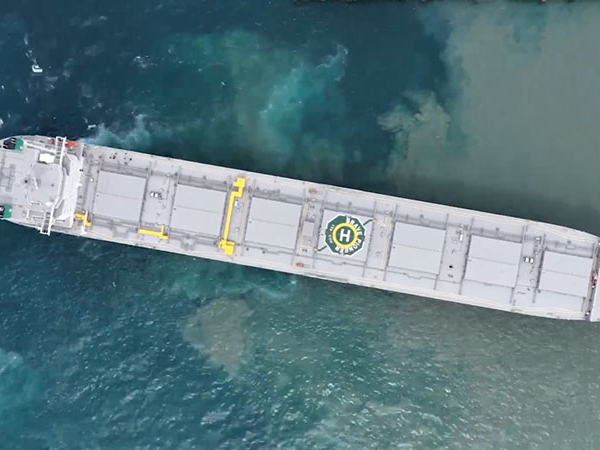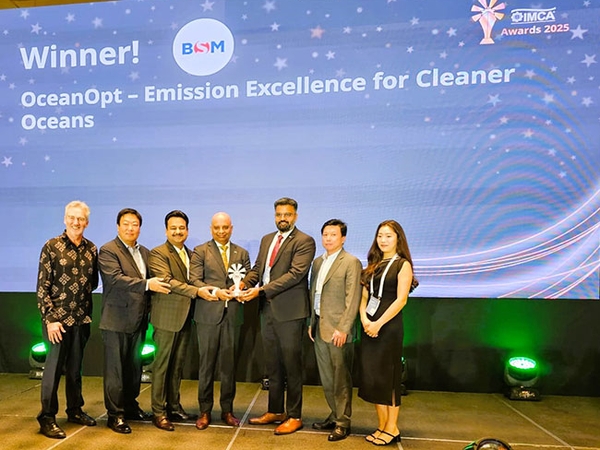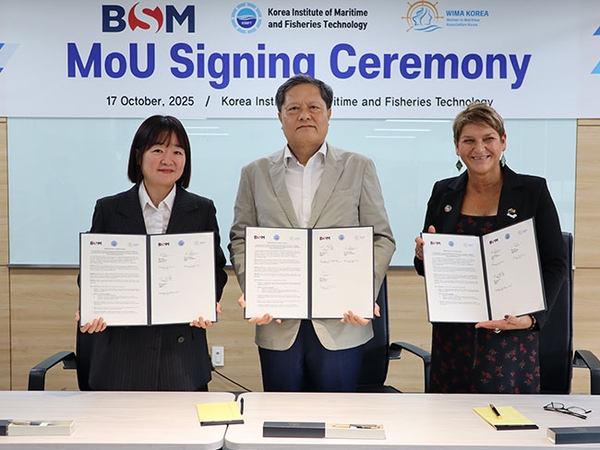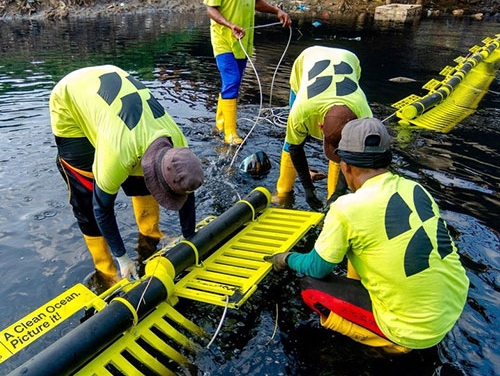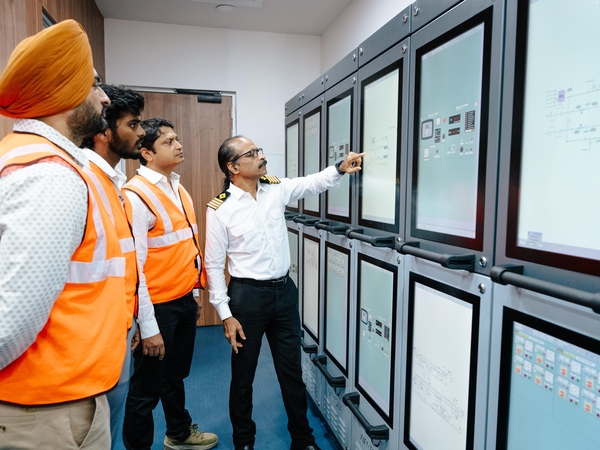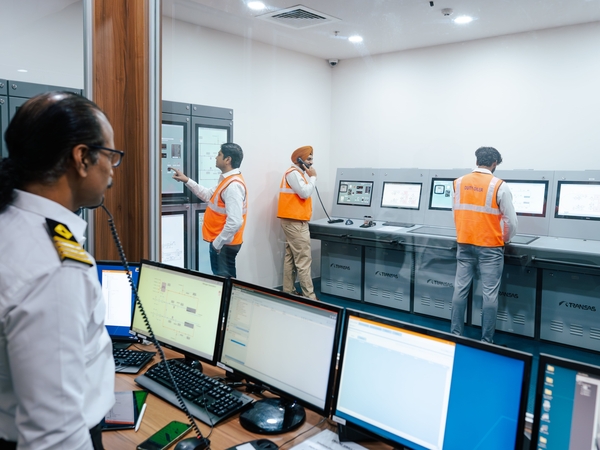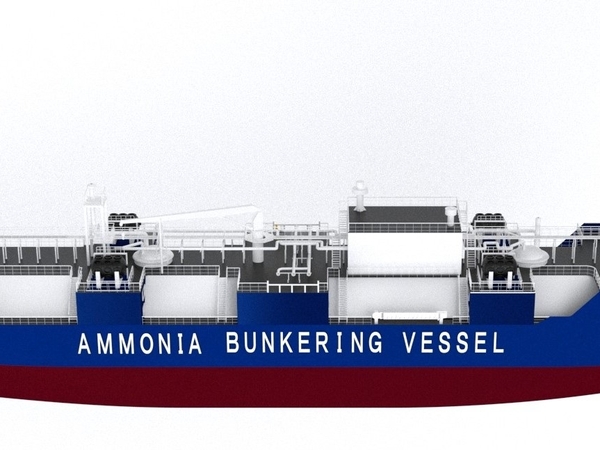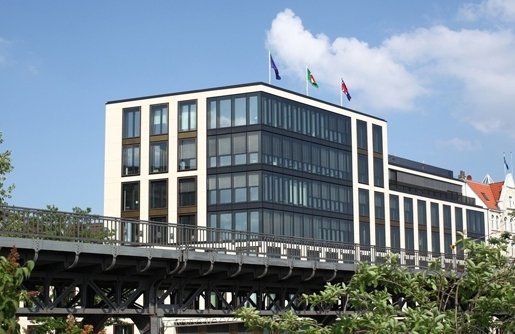
On January 1st 2018, Ian Beveridge was appointed CEO of Bernhard Schulte Shipmanagement (BSM). Retaining his position as CEO of Bernhard Schulte (BS), Mr Beveridge has a foot in both ship owner and ship manager camps.
From his Hamburg office, overlooking the continuous shipping activity afloat on the river Elbe, Mr Beveridge discussed the plans for both Bernhard Schulte and BSM. The questions were put to him by Inside Marine’s Daniel Barnes.
……………………………………………………………
From your perspective, what do you consider your greatest achievements over your 26 years with the Group?
As I have spent many years with the Schulte Group, my achievements have intertwined with the achievements of the Group as a whole, so I cannot really claim them as my achievements.
The company’s achievement over that time period has been very strong growth and more recently, getting through the financial crisis and its aftermath whilst meeting all of our commitments – which has not always been easy. Generally, the Schulte Group has developed a lot since I joined. Today we have a strong group of over 20,000 people both on board and ashore and we look forward with great optimism.
As of January 1st 2018, you took on the role of CEO at BSM, succeeding Norbert Aschmann in this position. What have been your main focuses during these first couple of months in charge and what were the deciding factors behind you accepting this new position?
We have two core businesses, one being the ship owning side (BS), and the other the ship management side (BSM); they are two different organisations, and while we always try to work together to address common requirements or challenges, I thought there was more scope for us to further optimise the co-operation between the two businesses. I felt there were some areas for integration also; combining both CEO roles makes it far easier to affect both areas.
Therefore, I have hit the ground running because I have worked very closely with the ship management organisation in my previous role and already know most of the management teams in the various locations. What I now have to focus on is meeting the BSM customers whom I don’t know already and understanding their needs and identifying how we can best respond to them.
We are also re-evaluating the overall Schulte Group strategy. We are now putting more emphasis on our integrated maritime solutions. That is where my focus will be over the coming years.
As a trusted name across the global shipping industry for over 130 years, in recent times how (if at all) has the organisation’s role or position changed?
On the ship owning side, the financial crisis begged the question of how we would keep our commitments to the shipyards, to the banks and to our customers. I’m happy to say that we have done that 100%.
We have also been able to continue to invest in our container ship fleet, in our service operation vessels for offshore wind farm maintenance and for gas supply and for bunkering. We have also invested in a full-size LNG tanker which is due for delivery later this year. More recently we have bought and ordered smaller sized bulk carriers.
We have continued to invest and in that way our position has not really changed compared to many other shipowners, particularly in Germany. We have been able to continue to look forward, even whilst struggling with bad markets in several segments; we have still been able to increase our fleet and invest in new areas.
We are increasing the emphasis on the offshore segment and have invested in related maritime businesses such as underwater hull cleaning, ship chandelling and logistics as well as software development, which has taken on quite a high profile via our in-house IT business unit MariApps Marine Solutions.
We also have a dedicated innovation hub; we are trying to anticipate various innovation projects with other parties in order to enhance our future capabilities.
Of the 600 vessels managed by BSM, how is this number split between vessel types? Is there a particular type/size of vessel BSM is focussing on?
BSM currently manages 150 bulk carriers, 170 container vessels 75 gas carriers, 180 chemical product and oil carriers, 30 offshore vessels and one cruise ship – which will hopefully be the first of many.
We are trying to position ourselves as a pre-eminent LNG ship manager. This takes high priority on the both ownership and ship management sides. On the ownership side we have one full sized LNG tanker and a small LNG tanker which will also be used for bunkering. It will be delivered in August this year and stationed in the Baltic Sea. We are participating in other tenders for gas supply vessels and are positioned as one of the main contenders.
We have a dedicated team looking after the gas supply vessel business, and that is where the synergy occurs between both organisations. We have people in this team from both sides because there are aspects which relate to the commercial side under the ship owning umbrella, and then of course the operations side, which falls under BSM. The design side is also operated by BSM through our newbuilding and conversions company Schulte Marine Concept.
On the ship management side, we have been managing ships for various LNG ship owners. And with the recent acquisition of Hamburg based LNG manager PRONAV, we have further LNG expertise. We bought PRONAV specifically to underline our commitment to the energy segment and we believe we are well positioned as a ship manager for LNG related projects, whether in vessels which transport LNG or those used for bunkering LNG or FSRUs. We have also been involved in projects for floating LNG production vessels, and so the whole spectrum of LNG is a high priority for us.
Where do you believe LNG has the greatest potential for growth across your shipping sectors? How do you intend to capitalise on these opportunities?
We think that the short sea transportation is a growth area which ties in with the bunkering, so some vessels will be involved in both of these activities. Generally, we think the short sea transportation will grow more strongly as the LNG infrastructure develops bringing more trading opportunities.
On the FSRU side, we also see it as having scope for the smaller size FSRUs, not only the full-size units; there are quite a few ongoing project at the moment for smaller FSRUs.
Apart from LNG, are there any other markets that are looking particularly promising for the industry in general and more specifically for BSM and the Schulte Group?
In general, we are quite optimistic about the bulker market in respect of the ship owning side, and also in respect of smaller container vessels – particularly modern ships with good fuel efficiency. The product tanker market, which has been pretty much in the doldrums, should pick up again this year.
With regards to BSM, we also have a big focus on the large bulk carriers. We manage more than half of all the Valemax fleet of ships that are trading. We would like to continue developing our business there.
The cruise segment is also promising, as we recently took our first cruise vessel under management. We are also involved in projects for expedition vessels including new build supervision, so when I talk about the cruise segment I include the more niche-type cruising. We have met some very interesting people discussing these projects; it’s a fascinating area.
How are environmental regulations changing the operations of ship management companies? How closely do you work with the leading bodies and associations to ensure your vessels meet the necessary requirements?
Environmental regulations concerning emissions and water ballast treatment are paramount. On the emissions side, we have decided that we want to position BSM as the ship manager with the best fuel efficiency capability, and so we have set up a fleet operations centre in Athens to look after the global BSM fleet.
There is also a strong focus on the software side and on having the right experts and the correct procedures in place on the vessels to improve energy efficiency; this obviously will become highly critical in 2020 with the new sulphur regulations. We are in dialogue with our end users – the container line or tanker and bulk carrier operators – to further improve onboard efficiency.
We are members and/or are represented at associations like Intertanko and Intercargo, we work very closely with the main classification societies and of course the oil majors, who are the customers of our customers, so to speak. They have possibly the highest requirements and we must meet those requirements.
Last year, the IMO amended its ballast water management regulations, delaying compliance from September 8th 2017 to the same date in 2019. What was BSM’s reaction to this decision?
On the ship owning side, this was rather annoying for us, because we have been an early mover and have already invested a lot in water ballast treatment systems, thinking that we would be well prepared and ahead of the rush. Once the dates were moved, we then tried to postpone whatever we could.
For a ship owner, later implementation is definitely better because firstly, the technology is still developing, and of course there are additional costs to run this equipment. At the same time, you could say that the environment is unnecessarily exposed to the risks in the meantime. As a ship owner we have been quite proactive, and so were not happy with the delay.
From the perspective of BSM, we are really just responding to the decisions of our clients. BSM had geared up to support our customers in installing or retro-fitting water ballast treatment systems – for which we have a dedicated team. But our customers have also deferred the installation.
Our reaction is to wait until our customers are ready to go ahead. In the meantime, we will collect data on all of the available systems along with operational data, so we can work out which systems are best for each application. Once our customers are ready to install, we can offer our support.
Seafarer wellbeing is improving decade-on-decade, yet improvements across the shipping industry can still be made, as I’m sure you’d agree. With over 18,000 seafarers, how does BSM ensure its crew members are in the right mental, physical and professional state to carry out their work? What support do you offer to your crews?
Our main way of ensuring our crews’ mental health is assured is to provide a structured and safe environment. This ensures that our officers and ratings know us well and they know what to expect, and that they can always contact us if they encounter any difficulties. Aside from that, in all crew recruiting locations we have our own Crew Service Centres (CSCs) and keep very close contact not just with our crew members, but with their families too, who can contact our CSC colleagues for any assistance needed.
We continue trying to improve the interface between the office and our vessels so that people onboard are treated properly. For the past six or seven years we have held HR Marine Events twice a year in different locations where we have a mix of office staff and officers from our vessels together discussing various issues. The aim is for people from different areas to get to know each other, and thus improving the communication and understanding between our seafarers and our office staff. I have participated in most of these events, and it’s a great way of understanding the real issues on board and gaining deeper insights.
We are also participating in the development of the Seafarer App. This provides advice on how to look after yourself whilst on board, and includes mental health, access to counselling and the church-based organisations seafarers can find ashore. Adding to this, we have a programme to develop a counselling capability onboard our vessels for identifying and helping crew members who are depressed. It’s not an easy thing to do, but we have to try and develop some capability on board to identify those who are struggling with depression and assist them.
Regarding physical health, onboard we are investing in better equipment and space for gyms, so people can do physical exercise and enjoy the associated social interaction. Of course, food is very important as well. We have a dedicated catering operation called Seachef Hospitality Services, which designs nutritional menus that ensure the food served on board is healthy and fresh.
On the professional side, we have a pretty comprehensive competency management system which helps to identify any training or mentoring requirements to support career development. We have our own Maritime Training Centres in five locations which we use as much as possible.
Our training facilities are equipped with simulators and ensure that our people are trained to the highest industry standards using our procedures. We support our crews aboard our vessels by way of the IT tools. We are investing a lot on the IT side – both on the user interfaces and on the functionality side of the software. We are also integrating further equipment into the software in order to reduce the workload on board and provide tools that actually help our officers do their jobs and automate simple processes.
What is your opinion on the next generation of shipping professionals? Are enough youngsters, in terms of both quantity and quality, emerging?
In the case of people on board, particularly officers, it is becoming more difficult to attract the very best people into shipping. In all of the traditional seafaring nations, there are now more alternative careers for people to follow where they can remain close to their families. Seafaring has become far more stressful; port calls are very short, and responsibilities are high.
Generally, there will be an ongoing issue in ensuring the industry can attract good people to work aboard the vessels. I think there has already been a big change – certainly during my time in the last 20 years. Before, in some of the traditional seafaring countries, it was a career for the top echelon. Once you were in, you spent the rest of your working life on the vessels. That seems to have changed a lot. The people who do work at sea are not doing so for as long as before, so it is an issue that we have to address.
In the next generation of shore-based shipping professionals, I think we will also see changes. Most of the youngsters entering the business are far more interested in their work-life balance. Traditionally, shipping and ship management demands long hours, and I think that the next generation is not so keen on that idea. We have to have a modern workplace and realise that people are not solely focussed on their careers.
Everything is in a state of change: our jobs are changing, and the newcomers will have to have a focus on the digital transformation.
Are there enough shipping professionals, in terms of both quantity and quality? At the moment I would say yes. We have been aware of these periodic reports stating that in five years there will be a shortage of some 30,000 or 50,000 seafarers; I have been seeing these reports for the last 20 years, and so far, I have never heard of a ship that didn’t sail because of a lack of crew! At the moment we have all of the officers we need, of the quality we need too.
But I do think that the trend indicates that it will become more difficult to find people of the right quality. A shortage of numbers I don’t see; the industry will react to that by inducting more people and promoting them more quickly. Whether or not that would be good for safety statistics remains to be seen; one then has to compensate for that by taking other measures.
What is BSM doing to entice and inspire the next generation of shipping professionals into the industry?
We have a big focus on our cadet programmes to inspire the next generation of seafarers. Our experience tells us that if we can attract good people as cadets, train them and look after them, then they will become good officers. We have had our best results with people who have been with us since the beginning of their careers. Of course, we need to expand that further, and it is our focus.
On the shore side, over the last 20 years, we have had a trainee programme whereby we induct people either straight from university or people who have been officers but who now wish to come ashore at a younger age. We have a two-year training programme, rotating through the different departments of the organisation, and we have had very good results from that. We will also continue to expand this.
Generally, to inspire young people we need to communicate better using modern communication tools, including social media. Within the company we must be open and transparent to get our messages across clearly in our purpose to be a very international. I think it’s a challenge to communicate well with absolutely everyone, and it is something we can always improve on and must do so.
What do you consider to be the biggest challenges currently facing BSM, and what are you doing to overcome them?
That’s pretty basic: BSM needs profitable growth since ship management is a scale business. It’s extremely competitive and fees are low; every customer expects a flawless service, but they don’t want to pay more than what our competitors are offering. So profitable growth is at the top of our list.
Dealing with ship management is a continual change because customers are selling vessels or taking them into their own management, and scrapping vessels. You not only have to replace these vessels lost due to factors beyond your control, but we also have to grow as our costs are increasing, but the fees are the same or even less than 20 years ago.
Finally, what are BSM’s key objectives for the future, and what excites you about moving ahead in your new position in the company?
The key objective unsurprisingly is to reduce unavoidable incidents; we need flawless operations. To reduce incidents, we must have even better training and digital support systems, just to mention two priorities.
Another key objective is to be the leading ship management company with regards to energy efficiency.
Personally, I am excited and curious to see how shipping will adapt to the environmental demands which are ever-increasing. What kind of fuels and propulsion systems will we be using in the future? How will we move our vessels through the oceans without destroying the environment?
The other aspect is how the era of digitalisation will affect how we do things on board our ships. Shipping is a pretty late adapter to this, and it will also come to ship management. I am curious to see how these digitalisation trends will affect how we do our work. We want to be at the forefront of digitalisation and innovation; that’s something I personally am very interested in driving forward, to ensure we are an industry leader.
Original article below.
Interview by Inside Marine, January 2018
